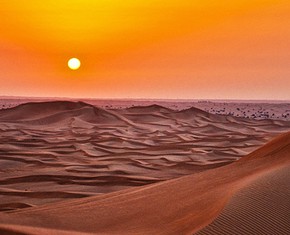The views expressed in our content reflect individual perspectives and do not represent the authoritative views of the Baha'i Faith.
Every Faith and culture speaks of a spiritual dimension; an invisible realm of beauty and light, a place of ancestors and spiritual beings.
This realm is not some faraway place “out there.” There is no separation between our material realm and that spiritual dimension – just a thin veil separates them. We are like infants in the womb, growing and developing our capacities until we are born into that realm. Although the infant may be unaware of the next world and think it is alone: the veil between this world and the next is the caul we wear like a cloak, the placenta connecting us with our mother, as Abdu’l-Baha explained in his writings:
Know then that the Lord God possesseth invisible realms which the human intellect can never hope to fathom nor the mind of man conceive. When once thou hast cleansed the channel of thy spiritual sense from the pollution of this worldly life, then wilt thou breathe in the sweet scents of holiness that blow from the blissful bowers of that heavenly land.
RELATED: How Indigenous Knowledge Can Help Transform Our Global Economy
From my childhood and youth I was blessed to have Indigenous friendships and relationships, and for a time lived on the Wind River Indian Reservation in Wyoming. While each Faith has beliefs around the spiritual dimension, many struggle to understand what those teachings mean in practical terms.
One of the greatest joys in my life has been to witness Indigenous spiritual technologies as lived forms of honoring intimate relationships with those who have passed on. There are many tools for bridging the physical and spiritual realm that all Indigenous communities are gifted with and, like communities of scientists around the world, have spent thousands of generations crafting and refining.
Some people understand Western science to be “objective” and “universal,” however there is growing appreciation in the culture of Western science that scientific understanding is impacted by the very act of observation. It is relative. One might say that understanding is about relationships.
That moment when we have the flash of insight where all the connections are made and when we deeply know, we feel it in our body. It could be said that we do not know something until we feel it. Until universal truths and principles have become localized in our experience, we cannot really be said to know them. Einstein was able to develop his mathematical model of the theory of relativity because when he was a young man he had a dream or vision of what it felt like to ride a ray of light. He then began to translate that subjective experience into mathematical expressions of the universal. In his own later work, Einstein made explicit the importance of subjective experience as perhaps the most important ground of discovery.
It would be a disservice and indeed false to pretend that the perspective of the observer did not impact the nature of what is being observed. While these understandings have emerged with Einstein’s insights, and those of others, Indigenous peoples have known this for many generations. It is why stories of lived experience are a form of teaching these spiritual technologies.
Within that ancient form of storytelling, we can find both an honoring of the subjective nature of observation and an intellectual humility that invites the listener to explore their own understanding.
RELATED: Heartful Knowledge: Furugh Switzer and Storytelling Mothers
After I wrote the first draft of these stories I was asked to explain and clarify some of the spiritual principles in them. I hesitated for a long time before attempting this. I remembered a practice of my Elders. When telling their stories, I’ve rarely, if ever, seen an Elder stop her or his story to explain what it “means” to those listening. There is a wisdom to this, as each person will take away from the story what they are ready to understand, and that which they are not yet ready to understand will remain waiting for their discovery as they mature. To try to explain it before they are ready could actually prevent them from the natural step of learning it later in an integrated way. More importantly perhaps, I paused from attempting to “explain” because I’ve noticed that every so often in my life, I have a realization that one of my fundamental assumptions about reality was completely wrong.
Over time the frequency of these realizations of my own ignorance have increased. Why then should I “explain” my own interpretation of what made the miracles in these stories happen? That would be like deciding that I should crystalize one stage of my ignorance as Truth. So I’ve made a compromise and sometimes explained my current understanding of the spiritual principles at work. My greatest hope is that this will invite you to further practice your own independent investigation of spiritual reality. Faith, belief, and trust are not just firm thoughts. As Abdu’l-Baha pointed out in the Baha’i teachings, they must be put into actual practice:
Let us endeavour from day to day to become more spiritual, to bring about the unity of the human world, to practice human equality, to diffuse the divine mercy, to show the love of God to all those who are on the earth, so that the spiritual faculties may shine in all their splendour; that no authority remain to the body, so that the spirit, which sustains and rules the human world, may form one being, one person.
















Comments
Sign in or create an account
Continue with Googleor